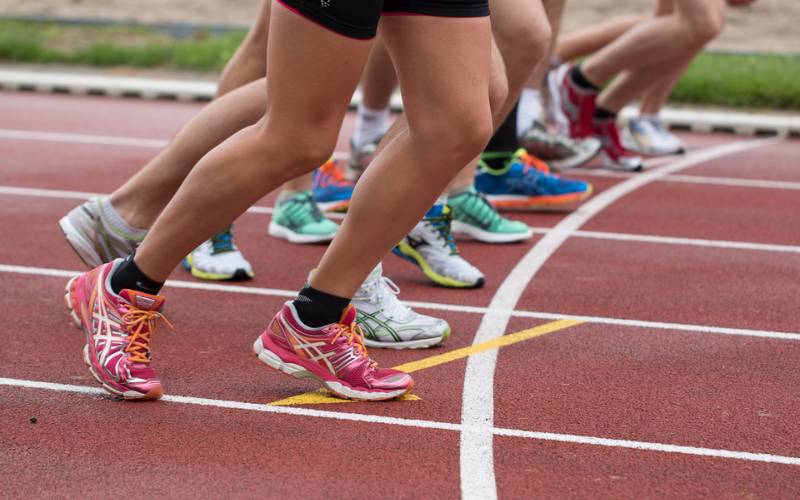Trans women athletes may actually have disadvantages compared to cis women
News
In a notable challenge to the conservative, anti-trans narrative that trans women have overwhelming biological advantages over cisgender women that should prevent them from competing in women’s sports, recent research indicates that the reality may be the opposite.
The study, partly funded by the International Olympic Committee (IOC) and released in the British Journal of Sports Medicine, examined the athletic capabilities of 35 trans athletes and 40 cisgender athletes. It assessed cardiovascular performance, strength, and lower-body power in 23 trans women, 12 trans men, 21 cis women, and 19 cis men. All trans participants had been on hormone therapy for over a year, and both cis and trans participants were active in competitive sports or engaged in regular physical training at least three times a week.

Image Credit: Canva
According to ‘LGBTQ Nation’, the findings revealed that trans women showed reduced lung function and similar bone density, which relates to muscle strength, compared to cis women. Trans women also scored lower in certain cardiovascular tests and exhibited less lower-body strength than cis women. The study noted “significant differences in fat mass, fat-free mass, laboratory sports performance measures and hand-grip strength measures between cisgender male and transgender female athletes,” differences that highlight the flaw in comparing cisgender male athletes to transgender female athletes.
Despite anti-trans activists and some Republican politicians using these discussions to push bans on trans women and girls in sports under the pretext of fairness, they often portray trans women’s athletic capabilities as on par with those of cisgender men. However, Yannis Pitsiladis, the lead researcher, said that it’s crucial for international sports federations and their consultants to recognise trans women as distinct from cisgender men when developing regulations.
He emphasised that the practice of comparing biological men to biological women is practically irrelevant in this context and such comparisons should not influence policy, a stance often promoted by many “armchair professors” who support blanket bans.
The researchers acknowledged the study’s limited sample size and other limitations, recommending a “long-term longitudinal study” to verify if their observations are directly attributable to gender-affirming hormone therapy (GAHT). They also warned against “precautionary bans and sport eligibility exclusions that are not based on sport-specific (or sport-relevant) research.”
At the SportAccord summit in Birmingham, U.K., last week, Pitsiladis expressed hope to Outsports that this new research might encourage the IOC to support further studies. He also wished that the study could facilitate the development of more tailored guidelines for trans inclusion by smaller sports federations, rather than them adopting the blanket bans implemented by larger bodies.
“But I suspect most will follow the lead of the larger federations to ban. Moreover, it's unlikely those large federations will shift their stances, as they are now too entrenched and rarely consider scientific evidence,” he noted, suggesting that their decisions are more politically and membership appeasement-oriented, rather than based on science.
Trans journalist Katelyn Burns, writing for MSNBC, expressed skepticism about the study's impact on anti-trans legislation, observing that the trans athlete debate has seldom been about fairness or safety in women’s sports but more about defining trans women as men legally, setting a precedent for more restrictive anti-trans laws. Despite this, Burns remains hopeful that the new research will correct misassumptions and misrepresented arguments about trans bodies by sports administrators committed to trans bans. This study serves as a validation for trans athletes, writers, and advocates who have tirelessly worked to clarify the significant physical differences between trans and cisgender bodies to the public.
Read related myGwork articles here:
Culture secretary Lucy Frazer calls for ban on trans athletes in women’s sport
Gymnastics Australia Announce Policy Change to Support Trans Athletes
Trans Pro Surfer: “Trans Athletes Are Here To Stay”
Trans Lawmakers Urge Joe Biden To Unequivocally Support Trans Student-Athletes
Keep up to date with the latest myGnews

